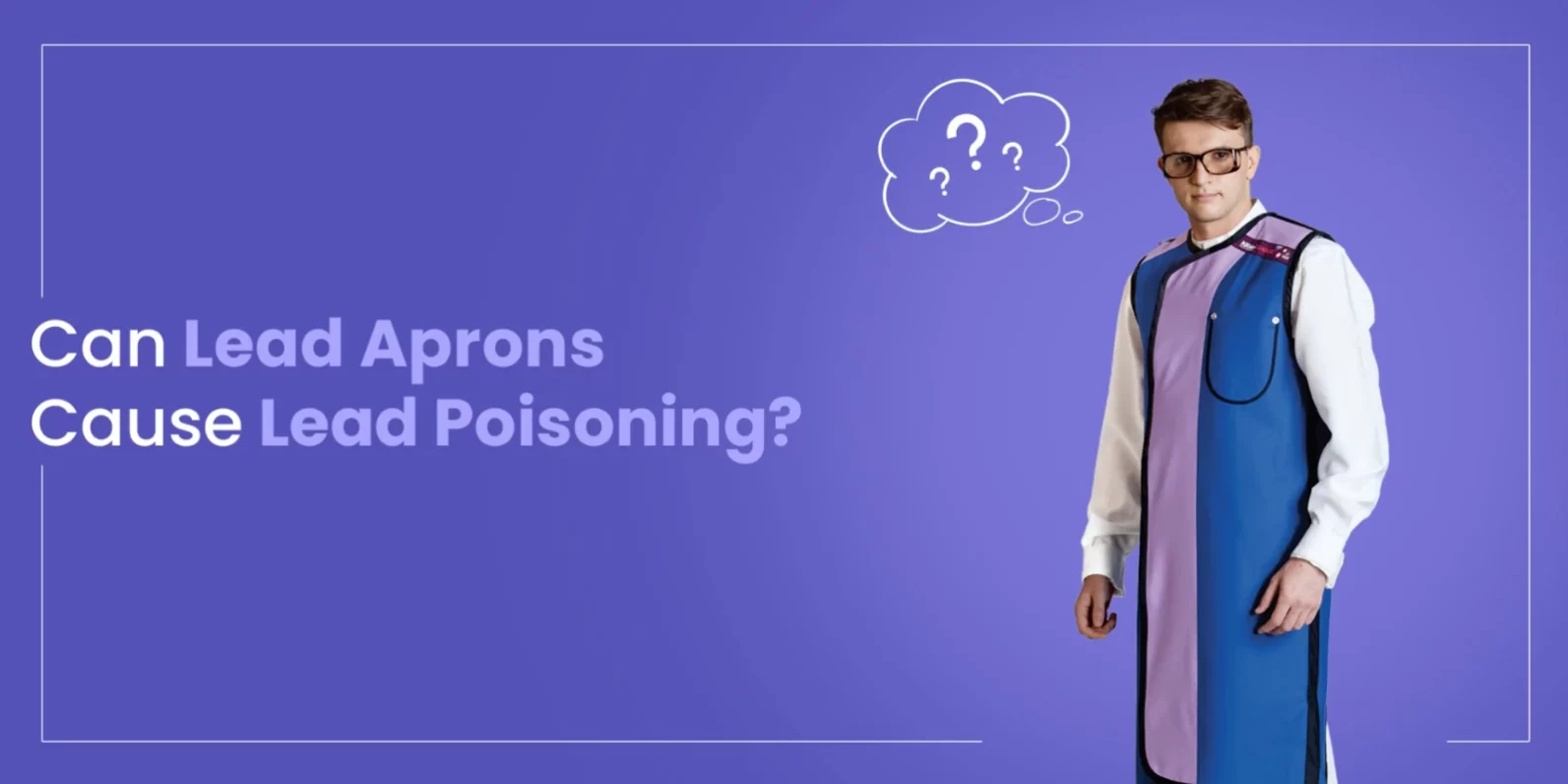Lead aprons have been a cornerstone of radiological protection for decades, safeguarding healthcare professionals and patients from the harmful effects of ionizing radiation. These aprons are designed to block X-rays and other forms of radiation, preventing them from penetrating the body and causing potential damage to tissues and organs. The effectiveness of lead aprons has made them indispensable in medical settings, but with increased awareness about lead poisoning, concerns about their safety have emerged.
This article talks about composition of lead aprons, their competition with non-lead alternatives, and why high-quality lead aprons, such as those from Trivitron Healthcare, ensure safety without compromising protection.
Composition of Lead Aprons
Lead aprons are primarily made from lead or lead-equivalent materials because of lead’s high atomic number, which makes it highly effective at attenuating X-rays and gamma rays. Typically, these aprons contain a thin sheet of lead, often sandwiched between layers of vinyl or other synthetic materials, providing flexibility and durability. The primary use of lead aprons is in medical imaging procedures, such as X-rays, CT scans, and fluoroscopy, where they protect both patients and healthcare workers from unnecessary radiation exposure.
Lead Aprons vs. Non-Lead Alternatives
In recent years, there has been a growing interest in non-lead alternatives for radiation protection. These alternatives, often made from composite materials like barium, tungsten, and antimony, offer several benefits, including being lighter in weight and more environmentally friendly. However, despite these advantages, lead aprons remain the gold standard for radiation protection due to their unparalleled effectiveness and cost-efficiency. Non-lead aprons, while innovative, often come at a higher cost and may not provide the same level of protection across all radiation types and intensities.
Ensuring Safety with Trivitron Healthcare’s Lead Aprons
Trivitron Healthcare, a renowned name in medical technology, manufactures high-quality lead aprons that adhere to stringent safety standards. One of the primary concerns with lead aprons is the potential for lead poisoning. However, it is essential to understand that lead poisoning from a lead apron is highly unlikely. The lead within these aprons is encapsulated in a secure, non-permeable material, ensuring that it does not come into contact with the skin or environment under normal usage conditions.
For lead poisoning to occur, lead must be ingested or inhaled in significant quantities. The lead in Trivitron Healthcare’s aprons is safely contained, preventing any risk of exposure. This makes them safe for daily use in medical environments. Trivitron’s commitment to quality ensures that their aprons are made from the finest materials, with rigorous testing to guarantee their safety and effectiveness.
Benefits of Lead Aprons
The benefits of using lead aprons are numerous and well-documented. Firstly, they provide excellent protection against radiation, significantly reducing the risk of radiation-induced illnesses such as cancer. This protection is crucial for healthcare workers who are frequently exposed to radiation in their line of work. Secondly, lead aprons are durable and cost-effective, offering a reliable means of protection over an extended period.
Moreover, lead aprons are versatile and can be used in various medical procedures, making them a valuable asset in any healthcare setting. Their ability to protect both the patient and the healthcare worker ensures a safer environment for all involved. The ease of use and relatively low maintenance required for lead aprons further add to their appeal.
Concerns about lead poisoning from lead aprons are understandable but largely unfounded. As previously mentioned, lead must be ingested or inhaled to pose a significant health risk. Trivitron Healthcare’s lead aprons are designed with layers of protective material that prevent any lead particles from escaping, ensuring that no lead poisoning will occur unless one were to ingest the apron itself, which is, of course, highly improbable.
With rigorous manufacturing standards and a commitment to safety, Trivitron ensures that their lead aprons provide maximum protection without compromising on safety.

